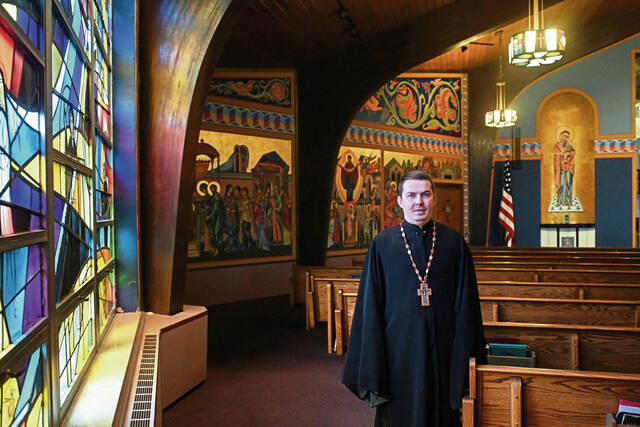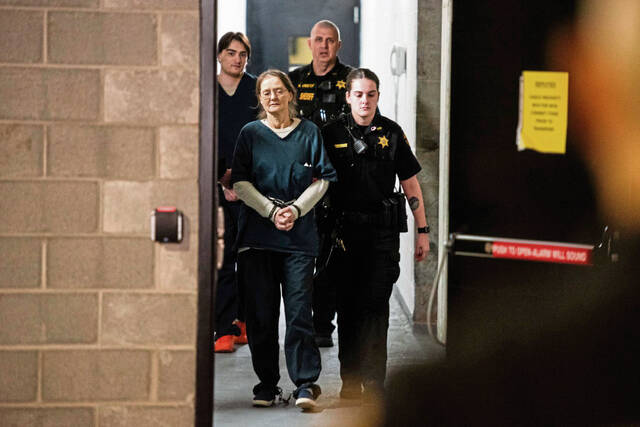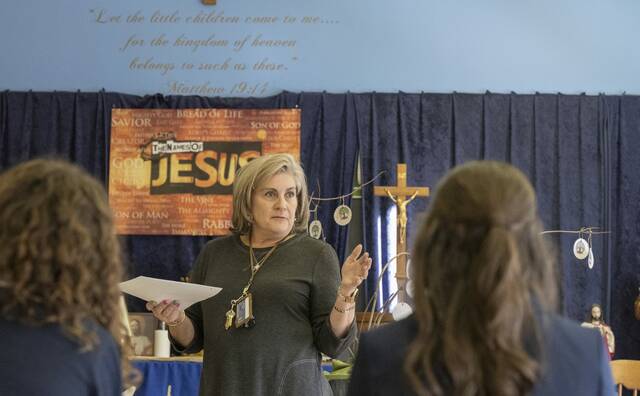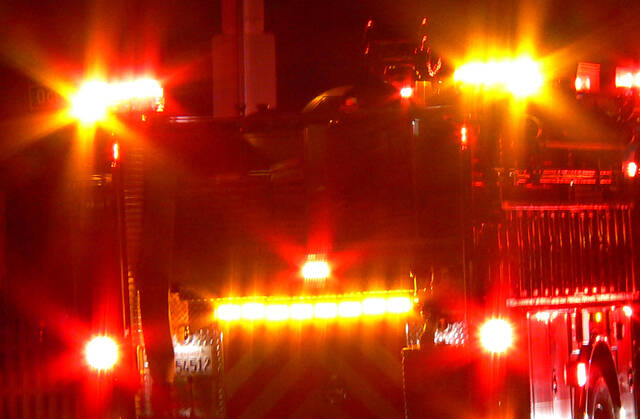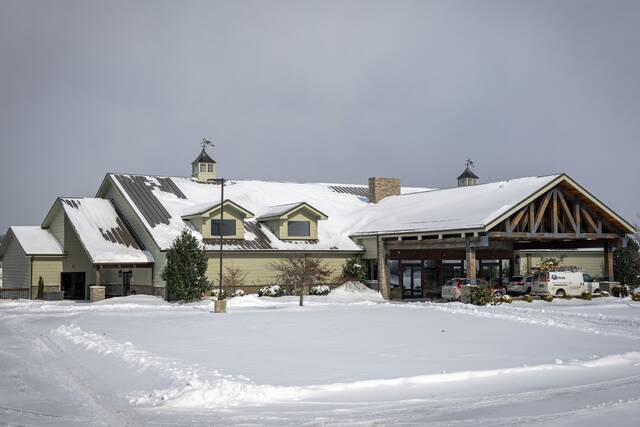The Catholic Diocese of Greensburg has launched an initiative to help refugees from war-torn Ukraine by offering some of them the opportunity to settle in Westmoreland County.
“It is an important part of the church’s mandate” to help those in need, said Bishop Larry J. Kulick.
The diocese is planning to host Ukrainian refugees July 30 and 31 to provide them with an overview of Western Pennsylvania and what it is like to live and work in the area. Several employers will discuss job opportunities and a three-hour tour of schools, churches, businesses, parks and entertainment venues is planned.
Not only is the initiative designed to help Ukrainian refugees resettle in the region, it will also help employers with new people in the workforce.
“Everyone is in need of workers to fill the gap,” such as in health care and industry, Kulick said.
The Economic Growth Connection of Westmoreland, a Greensburg-based economic development organization, is supporting the initiative to help employers find qualified workers, said James Smith, CEO. The challenges of finding workers to fill job openings has been an ongoing issue since the covid pandemic altered the workforce beginning in March 2020, prompting some people to leave the workforce.
“There’s no doubt, this could help us to build a connection for many businesses in our community. There’s a workforce shortage nationwide, brought on by the baby boomers (generation) reaching retirement age and exacerbated by covid. While the diocese and Catholic Charities are fulfilling their mission to help those in need, we are helping our employer community to match with these individuals to help fill desperately needed positions,” Smith said.
About 10 Ukrainian families have expressed interest in coming to Greensburg, but “we don’t know how many we will get,” Kulick said.
After they have that initial experience in the area, there could be “a second wave of (immigrant) settlement,” said Kulick, who grew up in Leechburg near his Slovak grandparents.
The initiative seeks to attract Ukrainians to live in a county where only 1.6% of the 350,700 residents in 2020 were born outside of the United States, according to data from the Census Bureau.
As part of the effort to cast a net out to Ukrainian refugees living within 250 miles of Greensburg, the diocese intends to send representatives to meet next month with officials of the Ukrainian Catholic Archeparchy of Philadelphia to discuss the program and learn what the refugees would need, Kulick said.
Archbishop-Metropolitan Rev. Borys Gudziak of the Ukrainian Catholic Archeparchy of Philadelphia was in Ukraine this week and could not be reached for comment, a spokesperson said.
To make it financially feasible for the Ukrainian families to come to Greensburg, Catholic Charities will cover the cost of travel, meals and hotels for those refugees who qualify and are preregistered.
The diocese is working with St. John the Baptist Byzantine Catholic Church in Scottdale, whose priest is the Rev. Oleh Seremchuk, a Ukrainian native.
“I hope it will help the Ukrainian people who have come to this country without any background (in the United States). Some of them know English, but there is the language, the culture and the area they must learn,” said Seremchuk, who will join Kulick in talking to the refugees about Western Pennsylvania.
Since the U.S. government’s Uniting for Ukraine program was launched in April 2022, about 174,000 Ukrainians have been authorized to book their own travel to come to the United States and about 137,500 people have arrived at ports of entry as of June 20 and been processed through Uniting for Ukraine, said Naree Ketudat, a spokesperson for the Department of Homeland Security. More than 206,000 Ukrainians have been processed into the nation outside of the Uniting for Ukraine program, Ketudt said.
For those who find their way to Southwestern Pennsylvania, the Ukrainian refugees could be with people of Ukrainian ancestry, since this region is home to the fourth-largest population of people with Ukrainian heritage in the country, Kulick said.
“We want to make sure they are wanted here and that resources are available for them as they live in the area,” said Melaney Hegyes, director of Catholic Charities in Greensburg.
Catholic Charities would help with short-term housing options for those refugees who want to live and work in the region, but “we are not a resettlement organization,” Kulick noted.
“We want to help them, help themselves,” Kulick said. “It’s like start-up support,” he added.


